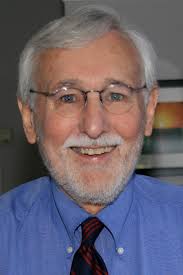Why Pharmacovigilance Starts with the First Study of a New Therapeutic Agent
Faculty :
Industry :
Duration :
Course Description:
Pharmacovigilance (PV) is the study of the safety of investigational medicinal Products / drugs under the real-life conditions of clinical use in the general population. Classically, PV focuses on the detection, assessment, understanding, and prevention of adverse effects (among other problems) related to the use of medicines after they have been approved. The prevalent view presently is that PV really starts the first time an experimental agent is given to a living being.
There is a very real increase in the mandated frequency of real-time requests by the FDA for post-marketing surveillance and actual Phase IV trials and it seems that no one is well prepared. It is now reasonable to expect that the Sponsors should include Post-approval trials as part of the development of any new Investigational Medicinal Product (IMP). Investigators, as well as all site staff, must know how to assess Pre and Post market ADRs as safety of the public is in the balance.
Why should you Attend?
With the increasing complexity of therapeutic agents now involving more biologics and an increase of use of new agents beyond the original intention and testing, it is essential to know as early as possible any untoward and unexpected Adverse Events and other serious toxicities. The well-known examples of Drugs pulled from the market after approval attests to the need for early surveillance.
The adage of Forewarned is Forearmed clearly applies. Focus areas would be how you assure Investigator involvement, site protocol adherence, appropriate safety assessments, and methods for data sampling.
Areas Covered:
- What is Pharmacovigilance and why is it needed?
- What are the types of studies? Phase I to Phase IV
- The Nature of the I/E criteria in the Phases of Drug Development
- How does the Safety Monitoring Plan differ in the Phases?
- What constitutes a rare adverse event?
- Why large studies are needed to uncover rare Serious Adverse Events?
- What is the role and value of a DMC in large studies?
- What endpoints is the FDA looking for once they have approved a drug/device?
- What agents have been pulled after approval and why?
The Learning Objectives of this Session are:
- Identify the main differences between Pre-market and Post-market studies
- Contrast the elements of type II or rare Adverse Events with type I Adverse Events
- Describe three AE mechanisms how an agent would be removed from the market after it had been approved
Who will benefit?
This webcast will be of immense value for the below mentioned Organisations and Professionals.
- Pharmaceutical, Biological and Device companies with an active pipeline of products and planning on Global studies.
- Principal Investigators and Sub Investigators
- Clinical Research Scientists (PKs, Biostatisticians, ...)
- Research Managers
- Safety Nurses
- Clinical Research Associates (CRAs) and Coordinators (CRCs)
- Recruiting Staff
- QA / QC auditors and Staff
- Study Monitors & Clinical Research Data managers
Target Organizations:
- Association of Clinical Pharmacology Units (ACPU)
- Society of Clinical Research Associates (SoCRA)
- Association of Clinical Research professional (ACRP)
- Association of Pharmaceutical Physicians and Investigators (APPI)
- American College of Clinical Pharmacology (ACCP)
- Regulatory Affairs Professional Society (RAPS)
- American Society of Clinical Pharmacology and Therapeutics (ASCPT)
- Drug Information Association (DIA) & more..
Registration Options
Speaker Details

Dr. Charles Pierce
Clinical Research
Dr. Charles Pierce has served as a family physician (7 years as an ER doc) and 23+ years in the medical research industry (7 years as a Principal Investigator). Charles has an experienced based knowledge of the Clinical Research part of Drug Development. Charles is a Fellow and Life Member of the American Academy of Family Physicians and Emeritus fellow of the American College of Clinical Pharmacology (ACCP) of which he was a Regent
Refund Policy
Participants/Registrants for our live events, may cancel up to 72 hours prior to the start of the live session and OnlineGRCTutorials will issue a letter of credit to be used towards any of OnlineGRCTutorials's future events. The letter of credit will be valid for 12 months.
OnlineGRCTutorials will process refund in cases where the event has been cancelled and is not rescheduled within 90 days from the original scheduled date of the webinar. In case if a live webinar is cancelled, participants/registrants may choose between recorded version of the course or a refund. Refunds will not be processed to participants who do not show up for the webinar. A webinar may be cancelled due to unavoidable circumstances, participants will be notified 24 hours before the scheduled start of the event. Contact us via email: contactus@onlinegrctutorials.com

